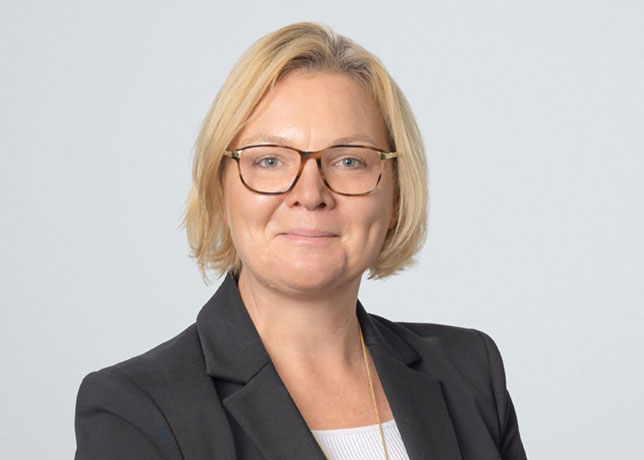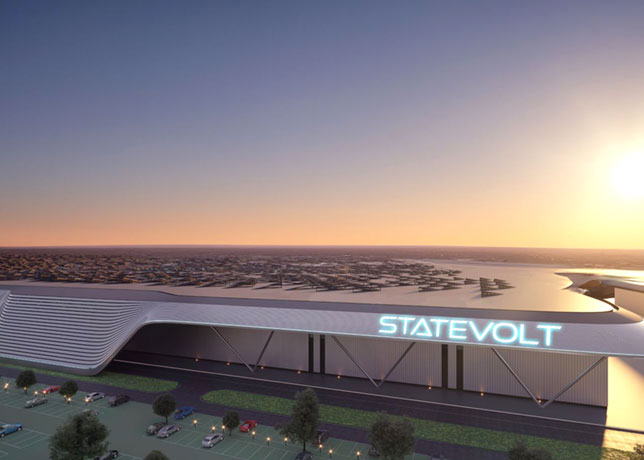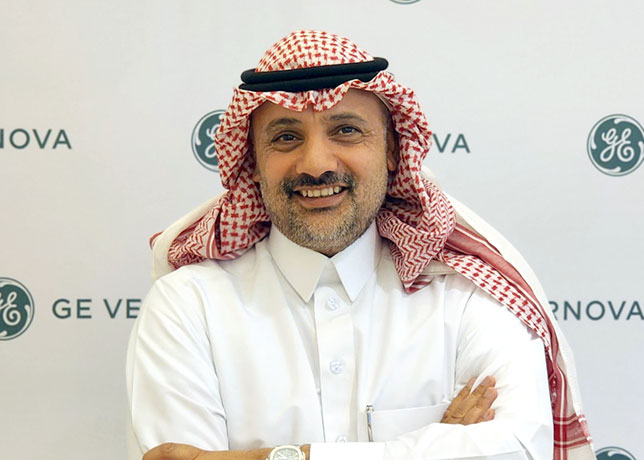
 Johanna Staples
Johanna Staples
AtkinsRéalis, which is working on major developments in the region, is committed to promoting sustainable project delivery across its projects in the Middle East. There is an opportunity to drive the thinking of key industry players at the front end of projects, say top officials of the company
AtkinsRéalis, a fully integrated professional services and project management company with offices around the world, has a strong presence in the Middle East. The company is uniquely positioned to help accelerate the region's Net Zero vision in key projects with its partners.
AtkinsRéalis has been supporting Saudi Arabia's energy transition programme for over a decade and has aligned its strategy for the Kingdom to meet the targets through tangible and result driven solutions, say key officials of the company in an interview with OGN.
Given AtkinsRéalis’ role in major developments in the country, the company is committed to promoting sustainable project delivery through its design approach, value engineering practices, and digital and net zero solutions, they say.
Excerpts from an interview with Johanna Staples, Regional Head of Advisory Services, Middle East; Panos Bafis, Chief Consultant, Nuclear and Net Zero Energy, Middle East; and Abdullah Aldosary, Operations Lead, Nuclear and Net Zero Energy, Saudi Arabia
How is AtkinsRéalis helping companies in the Kingdom to reduce carbon emissions and building resilience?
Abdullah Aldosary: Saudi Arabia has committed to achieve net-zero energy by 2060 and therefore, all the renewable and nuclear power projects in the country are focused on energy transition. In the long term, the Kingdom’s goal is to achieve 100 percent clean energy and AtkinsRéalis has been supporting Saudi’s energy transition programme for over a decade. We have aligned our strategy for the Kingdom to meet those targets through tangible and result driven solutions.
In practice, this means working with key industry players to shape the overall decarbonisation strategy and how it would translate to the spatial plan not just at a city level but also regionally. We are also assisting with the development of first-of-a-kind hydrogen production facilities and their distribution masterplans. There is an opportunity here to drive their thinking at the front end of projects.
Additionally, given AtkinsRéalis’ role in major developments in the country, we are committed to promoting sustainable project delivery through our design approach, value engineering practices, and digital and net zero solutions.
Collaboration with the government, project owners and the wider supply chain is pivotal to enhancing industry regulations and standards and ensuring we all have an active role to play in driving the sustainability agenda and socio-economic impact. We are advising our clients on how to reduce the carbon footprint overall, with an end-to-end approach to innovative and integrated solutions.
KSA aims to reach net zero emissions by 2060, how do you think the Kingdom can achieve these goals?
Panos Bafis

The recourse to fossils fuels in smaller proportions will still be necessary to meet electricity needs during peak demand periods. This variable adjustment factor underpins an efficient energy mix.
It is also essential that further efforts are made to reduce or even eliminate C02 emissions, including carbon capture, utilization, and storage (CCUS), which companies including Aramco are pursuing.
Does AtkinsRéalis have a net-zero plan in place? If so, can you walk us through it?
Johanna Staples: Globally, AtkinsRéalis set out to be Net Zero by 2030 and we are committed to maximising our impact through our Environmental, Social, and Governance (ESG) efforts. In line with the Paris Agreement and a 1.5° C pathway, we will submit targets for our Scope 1, 2 and full Scope 3 emissions to the Science-based Target Initiative (SBTi) in 2024. In 2021, we started categorising our revenues depending on whether the associated projects could be deemed sustainable. These are projects that either reduce global greenhouse gas (GHG) emissions, have a positive impact on the environment and/or have a strong social purpose. Based on our existing definition, approximately half of our revenues in 202324 are estimated to have been generated by sustainable projects.
Through our Engineering Net Zero programme, we actively develop solutions for our clients that contribute to a Net Zero carbon future and create lasting social value in the communities where we operate. We understand that stakeholders, including our employees, clients, investors, regulators, and the public, expect ESG to be an integral part of our business proposals, policies, and projects.
In 2023, we established our Middle East’s Sustainability Management Action Plan (SMAP), which embeds sustainability in everything we do, progresses attitudes within the industry and aspires to make all schemes in which we are involved net zero by 2030. The plan covers our estates across the region, travel, procurement, engagement and awareness, people & communities, and clients. Some of the key initiatives include recycling existing paper and plastic waste in our offices, eliminating use of plastic in our offices and project sites, developing the Regional Sustainable Travel Guidelines, and the Sustainability and ESG assessment criteria for the top suppliers, as well as conducting bespoke training sessions to upskill employees in sustainability and ESG best practices.
What new areas of investment are you planning in renewable energy: projects, manufacturing, joint ventures, etc.?
Panos Bafis: We don’t have any immediate plans to invest in renewable energy in the Kingdom. Our investment is in our people and expertise in energy transition. We have developed in-house training programme with focus on Engineering Net Zero and Carbon, thus enabling us to provide real expertise to our clients. Technology remains front and centre amid growing interest in nuclear energy around the world as part of the clean energy transition.
For example, AtkinsRéalis has also joined forces with Ceres, a global leader in clean energy technology, to deliver the front-end engineering design (FEED) for a commercial multi-megawatt modularised hydrogen production system based on Ceres’ robust, low-cost and highly efficient solid oxide technology. Solid oxide electrolysis (SOEC) provides a route to generate green hydrogen over 25% more efficiently than incumbent lower temperature technology.
Whilst not renewable, AtkinsRéalis (as the OEM and steward of CANDU technology) is developing a higher-power 1,000 MW class Gen III+ reactor, called the CANDU® MONARK™ reactor, which not only operates using natural (rather than enriched) uranium fuel but also has the unique ability to create medical isotopes during its operation. These modern large-scale reactors will play a critical role in producing the quantum of additional electricity supply that’s required to power the energy transition, providing energy security and reliable, clean power for millions of people.
What is AtkinsRéalis doing to develop the capabilities of Saudi engineers and technicians?
Abdullah Aldosary

More widely, we encourage knowledge sharing sessions, embed our teams within our projects, and collaborate closely with industry-leading experts, where graduates can learn and grow while working on exciting, complex projects for major clients. We even have a Saudi Vision 2030 Realisation Lead who supports the Saudi graduates, and their career development plans throughout the program. We are also facilitating routes for our employees to become chartered members of leading international organisations, such as the Royal Institution of Chartered Surveyors (RICS), the Royal Institute of British Architects (RIBA), the Association for Project Management (APM), and the Institution of Civil Engineers (ICE). By supporting our graduates in achieving these esteemed certifications, we are not only enhancing their professional credentials but also supporting their long-term career growth.
In 2023, AtkinsRéalis was also recognised as a ‘Great Place To Work’ in Saudi Arabia. This recognition is a testament to our continued commitment to promoting an equal, diverse, and inclusive workplace culture, where everyone feels respected and empowered to contribute to engineering a better future for the Kingdom and its people.
Can you share success stories of your local workforce and how AtkinsRéalis’ s company culture contributed to that success?
Johanna Staples: We have a legacy of working in Saudi Arabia and the wider region for over 50 years, and the Saudi Graduate Program reflects the dedication of the company to the Saudi Vision 2030.
The programme equips the graduates to be in the driving seat of their career by providing them with mentor support; global mobility opportunities and career guidance tailored specifically to each members/graduate’s interest. Once the graduates have completed their training programme, they rotate through the business, exploring different business area, different services to see if they find their home. It’s great to witness the progress of young graduates, once they evolve into full-fledged consultants with expertise in environmental sustainability, where they can make a difference in their own country and are developing the skills to do that.
By Abdulaziz Khattak




















































































